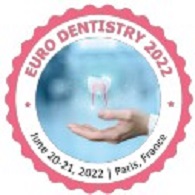
Prof. Fardos N. Rizk
Vice Dean for Teaching and Learning The British University in Egypt
Title: Evaluation of two CAD software on the adaptation of digitally constructed maxillary complete denture
Biography
Biography: Prof. Fardos N. Rizk
Abstract
Aims: This study was conducted to evaluate the adaptation of maxillary complete denture designed by two different open computer-aided design software programs (3Shape and Exocad) using Geomagic surface matching software. Settings and Design: This was a nonrandomized crossover clinical trial. Materials and Methods: Twenty completely edentulous patients were selected in this study. Forty complete dentures were designed using two different software programs: twenty dentures were designed by 3Shape software, and the other twenty dentures were designed by Exocad software. Maxillary dentures were evaluated regarding their adaptation by measuring the deviations that occurred between the fitting surface of the three-dimensional printed dentures, and the scanned master casts using Geomagic surface matching software. Statistical Analysis Used: An unpaired t-test was used for statistical analysis. Results: According to the positive average deviation value that represented pressure areas, 3Shape-designed maxillary dentures showed significantly lower mean deviation values (0.041115 ± 0.018165 mm) than Exocad‑designed maxillary dentures (0.500665 ± 0.032619 mm). Regarding the negative average deviation values that represented the gap areas, Exocad-designed maxillary dentures showed significantly lower mean deviation values (0.161555 ± 0.007842 mm) than 3Shape‑designed maxillary dentures(0.231350 ± 0.009146 mm). The results of the total average deviation values showed significantly lower mean deviation values (0.096950 ± 0.008868 mm) of 3Shape‑designed maxillary dentures than Exocad-designed maxillary dentures (0.250755 ± 0.021154 mm). Conclusion: 3Shape and Exocad software programs produced acceptable maxillary dentures regarding denture adaptation. However, maxillary dentures designed by 3 Shape software showed better adaptation than maxillary dentures designed by Exocad software.

